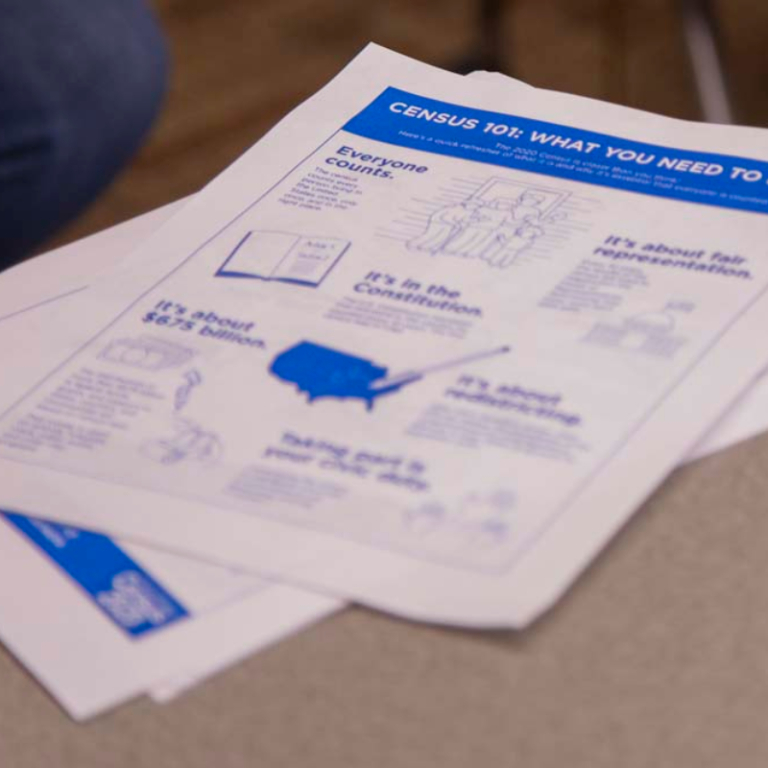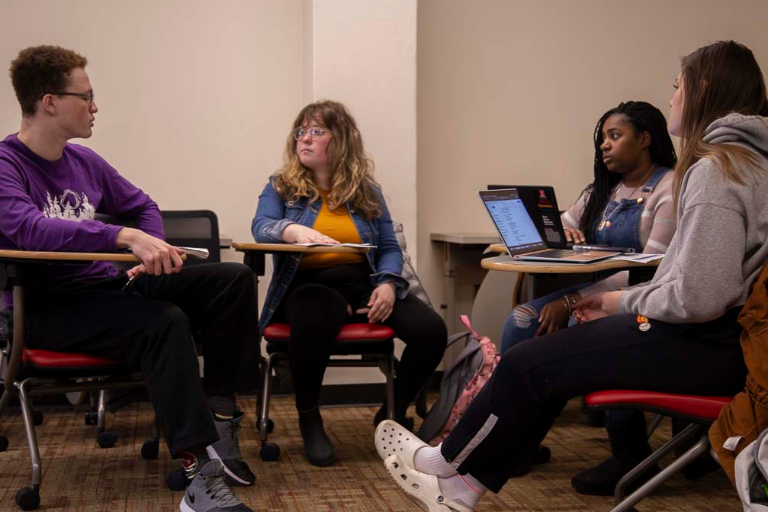How are voting districts drawn? How is federal money allocated to local governments? How are individuals represented within the Legislative branch of the U.S. government?
There's one answer: the U.S. census. April 1, 2020 will mark the 23rd U.S. census (one has been taken every 10 years since 1790).
What is the U.S. census?
The U.S. census is the way the United States constitutionally collects information from all citizens. The U.S. Census Bureau helps the federal government obtain a better understanding of populations across the nation and develop plans to best support communities for the next 10 years. Regardless of the administration in any branch of the federal government, the U.S. Census Bureau is an apolitical body, meaning that it is not affiliated with any party.
Why should I care about the U.S. census?
The census is an opportunity for everyone to have their voices heard. Individuals must fill out the census for their current address as of April 1, 2020; for college students, that address is on or near campus rather than family home address. Though you may live elsewhere in 10 years, someone else will be live here in your place – whether that is on-campus or in another location. It is important to report accurately, so that the federal government can best allocate funding to your region. For every one person in 300 that is not recorded in the census, the city of Bloomington, Ind. will lose about 1 million dollars in funding, according to Mayor John Hamilton. The census directly influences how each district is drawn, and thus appropriately represented within the House of Representatives. It also influences where businesses are located, how emergency response teams are assembled, and housing options for varied income levels.
How can I participate in the U.S. census?
Census forms will be sent to every U.S. mailbox (including your on-campus housing), starting in the middle of March. If you do not fill out one of these forms, a census-taker will come to your door to collect your responses. Some people may be worried about participating in the census—for example, an undocumented student, or someone who is simply protective of their own privacy. It is important to know the census remains anonymous, meaning that no identifiable information can be shared with any party. In fact, census employees can face jail time and significant fines for sharing sensitive information.
IU Corps & the U.S. census
Trevor Outlaw, Abby Bainbridge, Adara Donald, and Rachel Noll are all seniors students studying public relations in the IU Bloomington Media School. Through the Public Relations Student Society of America, the four have dedicated the majority of their year to creating and implementing communication strategies to educate students and Bloomington residents about the importance of the census. The students are working on this initiative through the Bateman Project, which, at IU, is a class led by the PRSSA faculty advisor, Dave Groobert. The students expressed that they are thankful to be working on a project with a lasting impact, and one that benefits everyone within the community.



